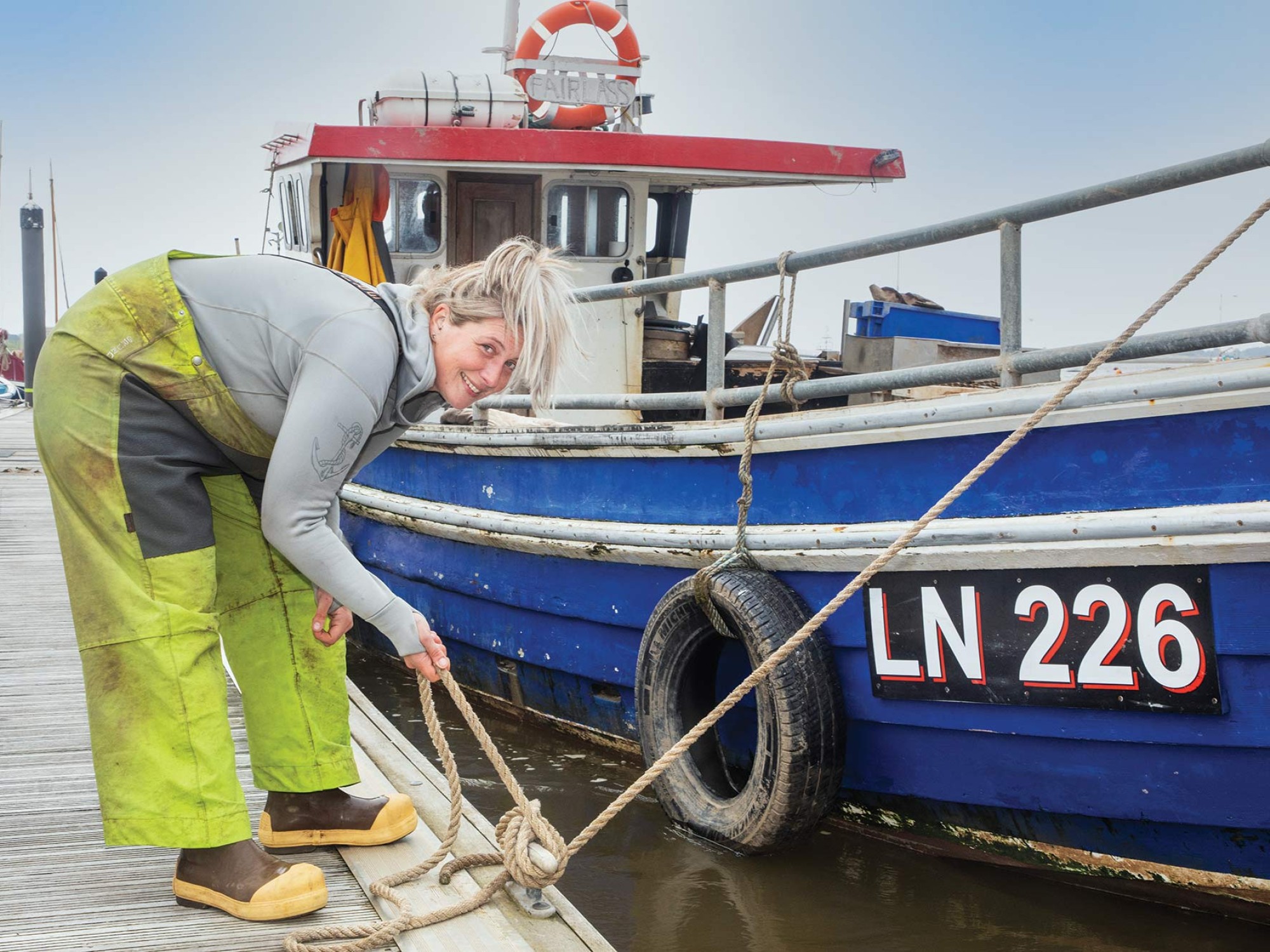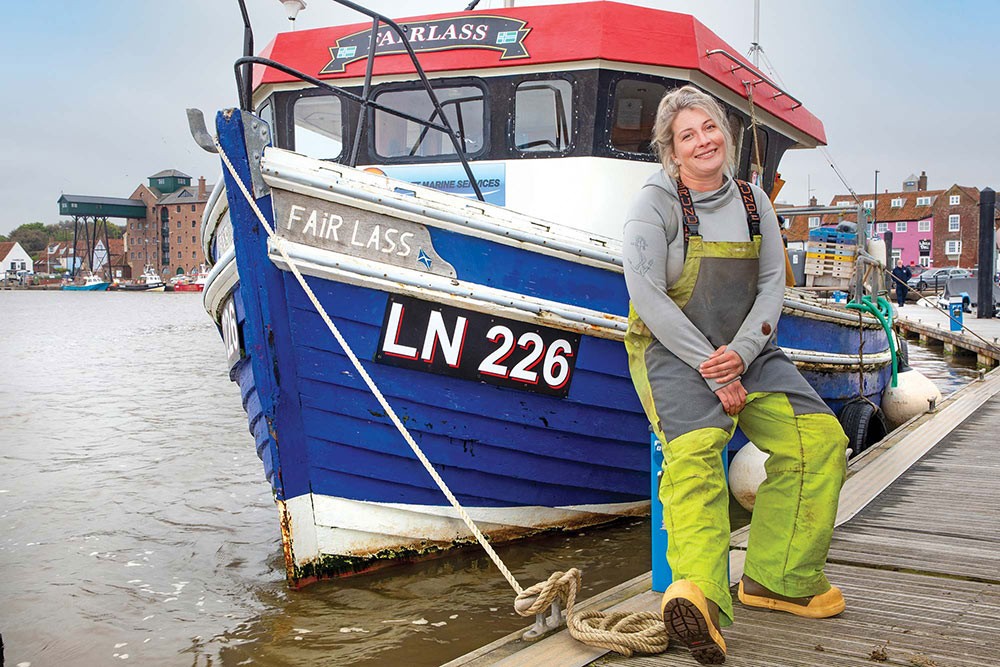
Catching up with the female fisherman
At the moment women make up only about 2% of the UK’s fishing industry, but there are signs that the tides are changing - and from Wells-Next-the-Sea fisherman Ashley Mullenger is leading the way
On 16th November last year, respected journalist Katya Adler caused something of a storm during a news report about Brexit talks on BBC’s Radio 4 Today programme when she referred to ‘fisherpeople’ - despite the fact that around 98% of the people working in commercial fishing (including processing) are men.
The backlash was considerable, making national headlines and even seeing GMB presenter Piers Morgan interviewing one of the very few women in the UK working in the industry from a boat off the north Norfolk coast.
Perhaps more surprising is the fact that Ashley Mullenger (who fishes from Wells-Next-the-Sea) agreed with him.
“Men have worked really hard for centuries to earn the title of ‘fisherman’ and I’m not going to take that away from them,” she says. “If you’re doing a job you love it doesn’t really matter what you call it. It’s totally irrelevant and I couldn’t care less. In fact, I actively promote the fact that I’m proud to be a fisherman.”
And a natural-born one at that.
Born in Oxford and raised in Cambridgeshire, Ashley moved to Norfolk with her parents before she became a teenager - and her only fishing experience was accompanying her father on his angling trips.
“I wanted to be an archaeologist, I wanted to be an astronaut, and I wanted to be a vet,” she says. “In fact I wanted to be something different every other week - and I finally ended up in an office.”

The ocean was calling, however. When her desk-bound colleagues wondered what they should do at the weekend, Ashley suggested chartering a fishing boat from Wells-Next-the-Sea for a couple of hours - an idea that would change her life.
“It was a genuine lightbulb moment,” she says. “It was an environment I wanted to be in and I felt like I fitted there.”
She asked skipper Nigel Storey if she could go on a full-day fishing trip, and there was no going back. It got to the point where Ashley didn’t even have to book her place, and when Nigel’s son left to work on a commercial fishing boat she faced something of a dilemma.
“By then Nigel and I had become good friends, so when he was short of a crew member he asked if I’d like to join,” says Ashley. “Thanks to my employer I was able to spend most of the summer at sea, but when that was over it was like the end of the world. I really missed it.”
By 2018 Nigel Storey had been operating his own commercial fishing boat out of Wells-Next-the-Sea for a couple of years, and Ashley often accompanied him when she could get away from her desk. When a crew member couldn’t make it one night, Nigel asked Ashley if she’d be prepared to step in, she jumped at the chance. And the rest is history.
Men have worked really hard for centuries to earn the title of ‘fisherman’ and I’m not going to take that away from them
“It was a massive move because I didn’t know if I was physically strong enough or if the job had the stability I needed,” she says. “But there are more important things in life than a regular salary and a mundane routine. I jumped into the great unknown, but I knew I was going to be happier for it.”
There’s no point in asking Ashley what her typical day is like, because there’s no such thing. Sometimes she’ll start work at 6am and sometimes she’ll start at 10pm. Her ‘office’ hours are now entirely dependent on the tides and the weather - and her livelihood is equally precarious.
“As a fisherman your wages are never going to be guaranteed because they largely depend on what you catch on any given day,” she says. “Take out the costs of bait, fuel, maintenance and repairs and there’s not a huge amount left.”
Ashley also sympathises with the plight of fishermen across the UK.
“I don’t want to get into a political debate but it’s somewhat bizarre that around 80% of the fish and 95% of the whelks we catch are sent abroad,” she says. “Supermarkets generally drive the demand, and that’s been putting undue pressure on certain fish stocks. I think that’s changing, though - people are becoming more aware of what’s local, what’s seasonal, and where their food is coming from."
But the appeal of being a fisherman isn’t about quotas, trade agreements, dangers, ferocious weather, 16-hour days or unpredictable earnings. At the end of the day it’s about freedom.
“That’s what I really enjoy,” says Ashley. “I love the complete and raw honesty of the job. You’re doing your own thing and you’re going where no one else is. Yes, it’s very hard work - but I wouldn’t swap it for the world.”
You can keep up with Ashley and her latest news on her Instagram account @thefemalefisherman
